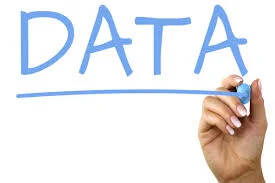Big data brings big responsibilities. It is called big data ethics. Since data is changing the way we live our lives and do business, let’s look at 10 controversial experiments of data science. Each one caters to a unique problem within the realm of big data ethics.
Data science is changing the game when it comes to manipulating data sets and visualizing big data. Knowing how to conduct a successful data science experiment while learning data science is critical for businesses if they want to effectively target and understand their customers. With these experiments, comes responsibility for understanding big data ethics.There is so much data out in the world that many people are overwhelmed by its sheer magnitude. Also, most people have no idea how powerful that information truly is. Yes, data experiments have the potential to improve their lives. At the same time, how do companies not step on toes with their data usage and application? This sets the basis for big data ethics.
PRO TIP: Join our data science bootcamp program today to enhance your data analysis skillset!
Data science experiments are typically utilized to not only answer questions a business may have but help businesses to create those questions, to begin with. We’ve compiled a list of some of the most controversial experiments of data science that have raised questions for big data ethics.
1. Target’s Pregnancy Prediction
Let’s first look at one of the most notorious examples of the potential of predictive analytics when studying a big data ethics case study. It’s well known that every time you go shopping, retailers are taking note of what you buy and when you’re buying it.
Your shopping habits are tracked and analyzed based on your time of shopping, use of digital coupons or paper coupons, buy brand name or generic, and so much more. Your data is stored in internal databases where it’s being picked apart to find trends between your demographics and buying habits (supposedly to serve your needs better).
Navigate through 7 data science applications in E-commerce
One Minneapolis man learned of his daughter’s pregnancy because Target effectively targeted his daughter with coupons for baby products once her buying habits assigned her a high “pregnancy prediction” score. This caused a social media firestorm.
Target did not violate any privacy policies, but did that mean this private event was appropriately targeted? The predictive analytics project was successful, but the public thought the targeted marketing was a little too invasive and direct. This was one of the most known big data ethics case studies that highlighted potential misuse of information.
2. Allstate Telemetry Packages
Second, let’s talk insurance. Car insurance premiums can make or break the bank. This is especially true depending on one’s driving record. For the most part, it’s easy to find an insurance company to ensure you (even if your driving record is less than desirable). Within the next decade, expect to see major changes in how insurance premiums are determined. One of the leading companies in this change is Allstate.
Allstate’s Drivewise package offers (mostly good) drivers the chance to save money based on their driving habits. The only caveat here is that Allstate will install a telematics tracking device in your vehicle to obtain this information. Your braking, speeding, and even call center data can potentially be used to determine your premiums.
If you’re a good driver, this might be great news for you, but some concerns get raised when it comes to GPS tracking. How ethically sound is this practice of using your driving data? This potentially identifiable information needs to be diligently safeguarded, but the real concern is how GPS tracking will affect people from poorer areas.
Car insurance companies can rate roads by how safe they are. If people from poorer areas are surrounded by roads with a less “safe” rating, and they spend 60% of their time driving on this, how much will this negatively affect their insurance premiums? Will their good driving record be enough to save them from outrageous premiums? What other data will be used- Tweets and other social media posts? All good questions to consider, when looking at big data ethics.
3. OkCupid Data Scrape
In 2016, almost 70,000 Okcupid profiles had their data released onto the Open Science Framework. This place is an online community where people share raw data and collaborate over data sets. Two Danish researchers, Emil Kirkegaard and Julius Daugbjerg-Bjerrekaer scraped the data with a bot profile on OkCupid and released publicly identifiable information such as age, gender, and sexual orientation to the survey questions the website asks when people sign up for a profile.
More importantly, the two researchers didn’t feel their actions were explicitly or ethically wrong, because “Data is already public.” This huge data release raised eyebrows and forced questions about the ethics of releasing “already public” data.
What does big data ethics have to say about already public data? What’s off-limits?
The main concern raised by big data ethics was that even though the information may be public, that doesn’t mean someone consents to personally identifiable data being published on an online forum.
4. The Wikipedia Likelihood of Success
Former Google data scientist, Seth Stephens-Davidowitz, wanted to take a look into what factors lead to successful people becoming successful. Stephens-Davidowitz was interested in finding components in people’s lives that made them successful (or just prominent enough to have Wikipedia pages). To delve into this issue, he downloaded over 150,000 Wikipedia pages to comprise his initial set of data.
His findings were that people who grew up in larger population towns near universities were more likely to be successful, and those towns required a lot of diversity; more successful people came out of towns that had high populations of immigrants and where creativity dealing with the arts was highly supported.
For some people, the idea of promoting the arts, subsidizing education, and promoting more immigration may not be items on their high-priority list. This example is a little different from some of the other examples. It doesn’t cause turmoil in the world of big data ethics, but its findings weren’t necessarily agreed upon.
5. Big Data and the Credit Gap
A big part of the “American Dream” is being able to climb up the ladder of success and financially provide for yourself and your loved ones. Your credit report and history will affect huge financial decisions in your life; it’s a number that will follow you for the rest of your life, and its scope reaches far beyond what type of interest rates you can get for loans.
Most Americans don’t comprehend everything that goes into their credit score makeup, and according to a Yale Journal of Law and Technology article, “traditional, automated credit scoring tools raise longstanding concerns of accuracy and fairness.” With the advent of big data ethics, alternative ways of credit scoring are rising—but with their own share of ethical concerns.
The growth mindset of “all data is credit data” attempts to benefit underserved consumers, by using algorithms to detect patterns in behavior. Unfortunately, “all data is credit data” pulls data points from consumers’ behavior online and offline.
Explore the power of LLMs in the Finance Industry
The problem with this is no one knows exactly how they are being scored, just that any data points are fair game. This poses the risk of being given an unfair credit score, with little foundation to stand on when it comes to disputing inaccurate scoring data.
The lack of transparency makes people wonder how objective credit scoring really is: will I be judged based on my social media presence, friends, church attendance, ethnicity, or sex?
Chances are, you already are. As for big data ethics, the general public doesn’t like this use of their data. Another concern is the accuracy of the data, which can affect major financial decisions and offers in your life, in some instances inaccurate data can severely hinder your ability to move forward financially.
6. Big Data Ethics and AI “Beauty Contest”
In 2016, the first AI (artificial intelligence) judged beauty contest selected 44 winners from the internet. The selection of winners raised concerns because of the 6,000 submitted photos from over 100 countries, only a handful were non-white. One person of color was selected as a winner, and the rest of the non-white winners were Asian. The obvious problem with this was that a majority of photo submissions came from Africa and India.
Read more about AI ethics and biased AI
The company that put on this internet beauty contest, Beauty.AI said this project was a “deep learning” project that was sponsored in part by Microsoft. Chief Science Officer, Alex Zhavoronkov of Beauty.AI claimed the algorithm used was biased because the data they trained it on was not diverse enough. For future projects, the hope is to correct the problem of bias by employing more sets of data and designing algorithms that can explain any bias.
7. Self-Driving Vehicles
Another instance in big data ethics occurred earlier in 2018 when an Uber self-driving vehicle struck and killed an Arizona woman, and instantly social media was up in arms. Self-driving vehicles are purposefully being designed to avoid accidents like this (the first of its kind) that brought up serious ethical dilemmas regarding the algorithms being designed for these vehicles.
Despite the big data ethics involved, it’s not just Uber that is testing the technology for these self-driving vehicles; tens of companies and startups are racing to be the first to deploy these vehicles to the masses, paired with the promise of these vehicles being safer and more energy efficient. Unfortunately, these machines are being programmed to make potentially life-or-death decisions.
Read about the ethical dilemmas of self-driving cars
Some questions raised by big data ethics include:
- What is the role of the vehicle, if the vehicle is about to be involved in a crash?
- Does the vehicle protect the people inside of it at all costs?
- Does the vehicle avoid the pedestrian at all costs (even if it means danger for the vehicle passengers)?
- Does the number of people in the vehicle vs the number of pedestrians about to be hit weigh in?
All of these questions need to be answered before self-driving vehicles can take part in society
8. Northpointe’s Risk Assessment
In the United States, the court systems are increasingly becoming reliant upon algorithms to determine the likelihood of recidivism among criminals. Northpointe, Inc. has a program called COMPAS (Correctional Offender Management Profiling for Alternative Sanctions) that is employed in multiple states and is used to give a “risk assessment” score.
To put it simply, COMPAS scores criminals on the likelihood of them being reoffenders in the future; the higher the score, the higher the likelihood of reoffending. In a 2016 analysis done by ProPublica, after looking at 10,000 criminals in Broward Co. Florida, black defendants were mistakenly given higher “scores” more often than their white counterparts.
Further, white criminals were often given a score lower than they should have been (they turned out to be more “risky” than they were perceived to be). Northpointe has since denied any racial bias that may be present in their algorithms, but the controversy in using a potentially racist algorithm raises concerns. As for a big data ethics case study, this experiment is greatly frowned upon.
9. 23andMe Genomics
23andMe is a company that launched in 2006 to help people understand their DNA and genetic makeup on a personal level that has never been accessible before. For $100 and a little bit of saliva, people could receive information on whether or not they had one or more of the 100 risk factors 23andMe had identified.
According to a 2015 Fast Company article, customers who opt-in can consent to have their data shared with drug and insurance corporations, or even academic labs. According to a quote from Matthew Herper’s Forbes article, “23andMe can only scan the genome for known variations,” but their recent partnership with the personal genetics company, Genentech, would like to pay for access to all of the data 23andMe has (that people have consented to, of course).
Partnerships with these paying corporations and labs have the power to data mine and find patterns in sequences at a cost far cheaper than traditional experiments, but the real cost is privacy.
The concern is that these pharmaceutical companies, academic labs, and government entities can potentially know more about you on a cellular level than you could ever know about yourself. Some feel that this is an overreach as far as big data ethics go. It has the potential to be misused on a massive scale.
10. Microsoft Tay Bot
In March 2016, Microsoft released a chatbot named “Tay” on Twitter. Tay was meant to talk like a teenager but lasted less than a day after Tay started tweeting hateful and racist content on social media. As an artificial intelligence machine, Tay learned how to communicate with people based on who she was talking to.
After shutting Tay down for her racist comments, Microsoft argued that the racist tweets were due in part to online “trolls” who were trying to force Tay into racist conversations.
Since 2016, Microsoft has made adjustments to its AI models and has released a new “lawyer bot” that can help people with legal advice online. According to a spokeswoman, the problem with Tay had to do with the “content-neutral algorithm,” and important questions such as “How can this hurt someone?” need to be asked before deploying these types of AI projects.
Learn more about large language models (LLMs)
Conclusion
As you can see, the use of big data ethics is changing the landscape of how businesses interact, reach, and successfully target consumer groups. While these arguably controversial data science experiments are pushing technology and data insight to the next level, there is still a long way to go.
Companies will have to ask themselves questions about the morality of algorithms, the purpose of their machine learning, and whether or not their experiment is ethically sound. Hence, enterprises cannot ignore big data ethics when working in the digital world.
More References:
- https://www.forbes.com/sites/kashmirhill/2012/02/16/how-target-figured-out-a-teen-girl-was-pregnant-before-her-father-did/#5e7d094f6668
- https://www.allstate.com/drive-wise.aspx
- https://pairedlife.com/dating/My-Review-of-the-OkCupid-Dating-App
- https://en.wikipedia.org/wiki/English_Wikipedia
- https://www.myfico.com/credit-education/whats-in-your-credit-score/
- https://www.unilad.co.uk/technology/another-ai-robot-turned-racist-this-time-at-beauty-contest/
- http://www.businessinsider.com/how-ubers-driverless-cars-work-2016-9?r=UK&IR=T
- https://www.propublica.org/article/machine-bias-risk-assessments-in-criminal-sentencing
- https://pharmacogeneticstesting.com/pharmacogenomic-companies/23andme-new-genetic-testing-products/
- https://www.pcmag.com/article/358741/microsoft-created-ai-that-reads-just-as-well-as-humans
Written by Sabrina Dominguez






